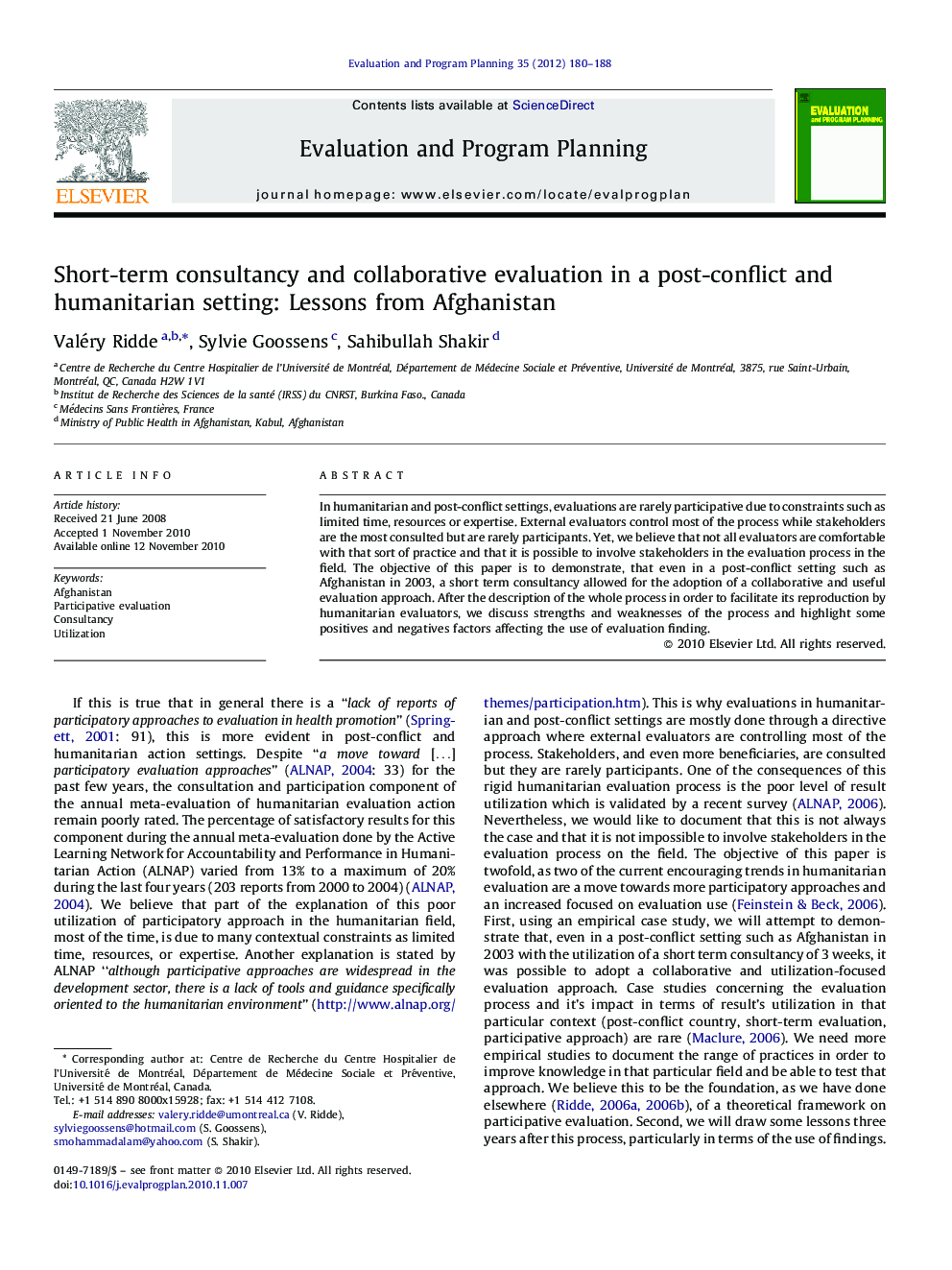| Article ID | Journal | Published Year | Pages | File Type |
|---|---|---|---|---|
| 322549 | Evaluation and Program Planning | 2012 | 9 Pages |
In humanitarian and post-conflict settings, evaluations are rarely participative due to constraints such as limited time, resources or expertise. External evaluators control most of the process while stakeholders are the most consulted but are rarely participants. Yet, we believe that not all evaluators are comfortable with that sort of practice and that it is possible to involve stakeholders in the evaluation process in the field. The objective of this paper is to demonstrate, that even in a post-conflict setting such as Afghanistan in 2003, a short term consultancy allowed for the adoption of a collaborative and useful evaluation approach. After the description of the whole process in order to facilitate its reproduction by humanitarian evaluators, we discuss strengths and weaknesses of the process and highlight some positives and negatives factors affecting the use of evaluation finding.
